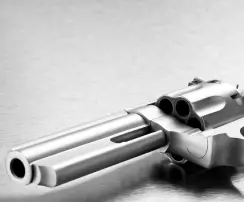 The Legal Path to Reclaiming Second Amendment Rights
The Legal Path to Reclaiming Second Amendment RightsIn Florida, individuals convicted of non-violent felonies may have the opportunity to restore their firearm rights. The process is governed by state laws and requires fulfilling specific criteria and navigating a legal procedure.
Our expert firearm attorneys will outline the steps involved in reinstating gun rights for non-violent felons in Florida, including updates on the latest proposed laws.
Before initiating the process of restoring gun rights, it is essential to determine eligibility. The fundamental requirements include:
Restoring firearm rights involves several steps, each requiring thorough attention to detail and adherence to legal procedures:
The initial step in the process is to apply for clemency through the Florida Office of Executive Clemency. Clemency serves as an official pardon or commutation of the felony conviction, a prerequisite for gun rights restoration.
Upon submission, the application undergoes a review process by the Florida Commission on Offender Review. This process includes:
The final decision rests with the Florida Board of Executive Clemency, which consists of the Governor and members of the Cabinet. The Board reviews the investigation findings and makes a determination based on various factors, including:
The decision can result in either the granting or denial of clemency. If granted, the applicant’s civil rights, including the right to possess firearms, are restored.
Once the completed application is submitted, the Office of Executive Clemency will issue a Receipt Notice. The application may remain pending for several years before the investigative process even begins. The applicant will be responsible for keeping the Office of Executive Clemency advised of any changes in address or telephone number. If clemency is granted, the applicant will receive a Certificate of Restoration of Civil Rights. This certificate serves as official documentation of the restoration of gun rights and must be retained for future reference.
Recently, there have been legislative efforts to streamline the process for non-violent felons to regain their firearm rights. A bill proposed in the Florida legislature aims to reduce the waiting period to five years and simplify the application process by allowing online submissions.
As of February 2025, this proposed law passed the initial committee review and is awaiting a vote in the state Senate. If enacted, it would significantly expedite the restoration process for eligible individuals.
The process of restoring gun rights for non-violent felons in Florida is comprehensive and requires careful adherence to legal protocols. Eligible individuals must demonstrate rehabilitation and compliance with the law to successfully navigate the clemency process.
With the potential changes in legislation and recent court rulings, the process may become more accessible, offering non-violent felons a clearer path to reclaiming their Second Amendment rights in the state of Florida. Check back often for updates on the law as they happen.
509 W Colonial Dr. Orlando, FL 32804
Law Office Directions
Free Consultation(321) 332-0430
Contact the Law Offices of Katz & Phillips today to speak with one of our attorneys about your case today by filling out the form below, or call us at (321) 332-0430.
"*" indicates required fields